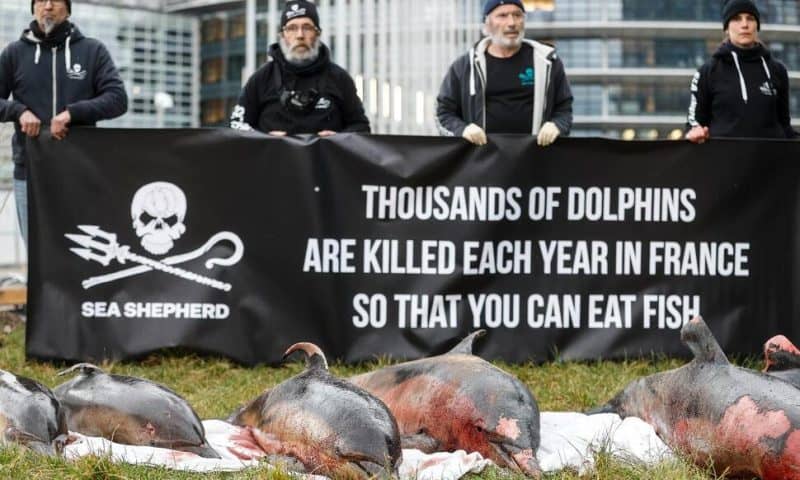France’s highest administrative body has ordered the government to better protect endangered dolphins and porpoises in a French industrial fishing hub in the Atlantic Ocean that has become controversial over links to mass deaths of cetaceans in recent years
PARIS — France’s highest administrative body on Monday ordered the government to better protect endangered dolphins and porpoises in an industrial fishing hub in the Atlantic Ocean that has become controversial over links to mass deaths of the creatures in recent years.
The move was welcomed by conservationists, who hope it could stop some species becoming extinct in the zone.
The council of state gave government officials six months “to close areas of fishing in the Bay of Biscay for appropriate periods, in order to limit the number of deaths of common dolphins, bottlenose dolphins and harbor porpoises that are victims of accidental capture during fishing.”
It also required them to compile a reliable estimate of the annual number of accidental catches.
Government-affiliated scientists estimate that some 10,000 dolphins and porpoises are killed on average every year in that maritime zone of western France alone — one recent year recorded 18,000 deaths. They’re widely blamed on industrial fishing.
Indiscriminate French nets, sometimes 50 kilometers (31 miles) long, trawl the ocean for regular fish, indiscriminately pulling in a full range of sea creatures.
Several species are now in a state of “unfavorable conservation,” with the common dolphin and harbor porpoise in “serious danger of extinction” in the region, officials said.
What’s shocked people is the brutality of many of the deaths. Autopsies carried out on some dolphins showed extreme levels of mutilation. Activists say it’s common for fishermen to cut body parts off the suffocated dolphins after they are pulled up on the nets, to save the nets.
Sea Shepherd France is among groups that have fought to get trawlers and boats to curb their deadly practices.
“Of course, this move is a ray of hope for us but it’s bittersweet. So many dolphins are already dead, we see dead creatures washed up every day. I hope it’s not too late,” Lamya Essemlali of Sea Shepherd France told The Associated Press. “We’ve come so far. Even a few years ago in France, no one knew about these horrors.”
French and international conservation groups now want French Sea Minister Herve Berville to implement the recommendations of international agencies, according to which the Bay of Biscay needs to be closed for fishing for three months in winter and one month in summer to save the population.
But damage to the cetacean population has already been done. Dolphins in the zone are already behaving in ways scientifically consistent with a dying population, conservation groups say.
“The dolphins have already changed their reproductive pattern; they are giving birth faster. This is a sign just before extinction,” Essemlali added.

